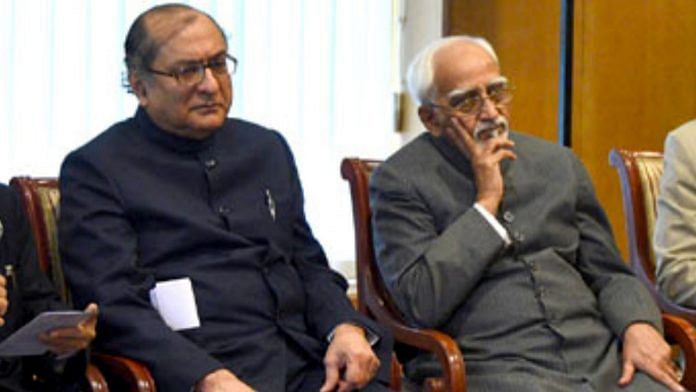New Delhi: India last week lost an important figure who helped shape the country’s science and technology policies with the passing away of Ashok Parthasarathi on 12 August.
Parthasarathi, who served as former prime minister Indira Gandhi’s science and technology adviser for nearly 10 years, played a pivotal role in making India self-reliant in the field of science and tech at a time when the country couldn’t afford to import latest technologies.
His efforts helped India establish public sector companies to manufacture products ranging from microchips to satellite-based communication systems.
Despite being a pioneer in India’s science and technology policy-making and a close aide of Indira Gandhi during her tenure as the PM, Parthasarathi’s death went unnoticed by government officials and political figures.
Born in 1940, Parthasarathi held a number of important positions with the Government of India — secretary in the Department of Scientific and Industrial Research (DSIR), the Department of Electronics, and the Ministry of New and Renewable Energy.
He also served as a professor at the Centre for Studies in Science Policy, Jawaharlal Nehru University, between February 2000 and July 2005.
Parthasarathi’s contribution to the development of defence electronics sector has been widely acknowledged as has been his contribution to solar power systems.
He was ailing for the last two years, but his family did not reveal the exact cause of his death.
‘A toughie, who called a spade a spade’
Former director general of Council of Scientific and Industrial Research Dr Raghunath Anant Mashelkar described Parthasarathi as a great leader, who played a crucial role in creating public sector enterprises in the 1970s.
“The context at that time was very different for India than it is today. In the 70s, we did not have dollars. There was technology, but it was not available to us. We had to do everything on our own,” Mashelkar told ThePrint.
“For example, none of the defence electronics technologies like microchips, fibre optics were available in India. These had to be developed and then given to those who needed them — like the DRDO,” he added.
“Ashok’s major contribution was to create self-reliant technology in strategic sectors,” Mashelkar said. Under Parthasarathi’s leadership, the public sector became prominent, he added.
Mashelkar described him as a nationalist to the core with immense integrity, who brought high intellectual capital to the table.
“If I have to summarise, Ashok was Ashok. He had a mind of his own. He would not worry about authority. He would call a spade a spade, he was very frank. People used to see him as a ‘toughie’”, he said.
Also read: India’s planetary system needs ‘Indian’ name, students get 15 more days to send entries
‘One of India’s best known Science and Technology planners’
Dr H. Purushotham, chairman and managing director of National Research Development Corporation (NRDC), recalled that Parthasarathi had a unique leadership style.
“He was very outspoken and daring. The kind of stature and the kind of authority he exhibited was phenomenal. His legacy is very difficult to explain, you have to experience it,” Purushotham told ThePrint.
Purushotham recalled how during his tenure as the secretary at DSIR, Parthasarathi had put NRDC on the highest pedestal.
“Due to his connections and capacity building, we are able to do whatever work we are doing today. The NRDC owes a lot to Dr Parthasarathi. He was closely associated with NRDC, its performance and functions,” he said.
“His connection with the top brass of the country enabled many high-end technology transfers,” said Purushotham.
During the launch of ‘A lifetime of Moulding Technology and Science Policy in India’ in 2016 — a collection of articles dedicated to Parthasarathi — then vice-president Hamid Ansari had acknowledged his contributions to the field of science.
“He is one of India’s best known Science and Technology planners and was consulted by the government during the 1971 war with Pakistan,” Ansari said.
The former vice-president added that Parthasarathi was closely associated with several of India’s defence projects, including the 1974 Pokhran nuclear tests.
“Prof. Parthasarthi built on the legacy of the importance that science was accorded in independent India by Pandit Nehru, who not only saw science as solving the ‘problems of hunger and poverty, of insanitation and illiteracy, of superstition and deadening custom and tradition, of vast resources running to waste, or a rich country inhabited by starving people’, but also dreamt of an India where scientific temper would be the basis of all social interaction,” he added.
Also read: IIT-Mandi scientists show how stories about climate change could help shape policies



